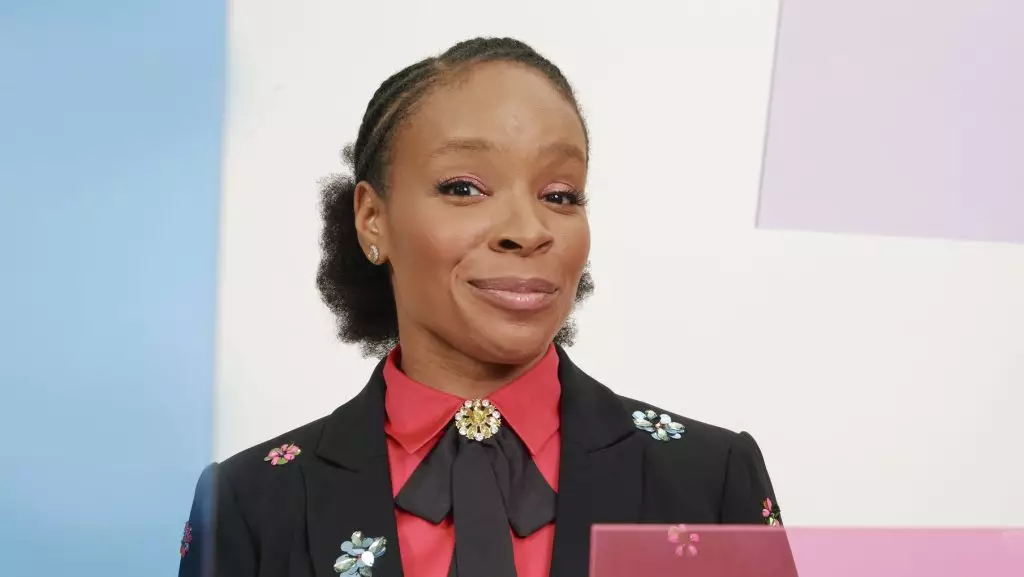The White House Correspondents’ Association (WHCA) has made headlines by choosing to forgo a comedian at this year’s annual dinner, a notable departure from its longstanding tradition. Scheduled for April 26, the event has traditionally combined the festive atmosphere of entertainment with a celebration of the hard work done by journalists. However, WHCA President Eugene Daniels announced this year’s decision to prioritize recognition of journalistic excellence, stating the focus should not be on humor but rather on honoring those who uphold the ideals of a free press. This change comes amidst ongoing political tensions and controversies surrounding the relationship between the government and the media, particularly in light of the previous administration’s contentious approach to press relations.
Political Ramifications
The decision to exclude comedic entertainment aligns closely with the increasing polarization of the American political landscape. Daniels emphasized a desire to steer the focus away from divisive politics and towards celebrating the foundational tenets of journalism. Notably, the anticipated performer, Amber Ruffin, has been criticized for her past comments targeting Donald Trump, illustrating how humor and politics intersect in ways that can fuel dissent rather than foster unity. By choosing to eliminate a comedian from the lineup, the WHCA appears to be attempting to navigate these sensitivities, albeit at the risk of diminishing the event’s historical flair.
Ruffin’s connections to various media platforms, including her own late-night talk show and her work on “Late Night with Seth Meyers,” signify her status as a notable voice in comedic commentary. Her exclusion highlights how the association grapples with the repercussions of humor that sharpens political divides rather than alleviates them. Current tensions have also extended to the White House’s control over the press pool, raising questions about transparency and access in an environment where the accountability of power is paramount.
Past Performances: A Double-Edged Sword
Historically, the WHCA dinner has served as a platform for comic relief – one that opens a window into the interplay between the political elite and the media. Yet, the balance between comedy and critique has often proven precarious. For instance, the 2006 performance by Stephen Colbert during George W. Bush’s presidency remains a hallmark of how humor can function as both entertainment and a tool for political commentary. As seen in recent years, the inclusion of comedians has become contentious, especially when performances challenge the sitting administration in ways perceived as insulting.
In 2018, comedian Michelle Wolf received backlash for her biting humor regarding then-Press Secretary Sarah Huckabee Sanders, spotlighting the thin line between satire and scorn. This incident and others have prompted the WHCA to reconsider how to balance humorous engagement with the monumental responsibility of advocating for a free and independent press.
A New Direction for the WHCA
Daniels’ recent communication with WHCA members suggests a broader vision than merely replacing the comedian with safer choices. He aims to reshape the dinner experience into a definitive celebration of journalistic integrity, perhaps in response to the “murderers” rhetoric that has been invoked against administration practices. By focusing on the ethical pillars of journalism, the WHCA seems eager to remind attendees – and the public at large – of the indispensable role that a vibrant press plays in maintaining democracy.
The historical significance of this dinner cannot be understated, especially as it evolves in real-time to respond to the landscape of American media and its relationship to power. Daniels’ letter indicates that further details will be shared, hinting at possible programming that could emphasize mentorship and scholarship as foundational components, appealing to both seasoned journalists and aspiring ones.
Looking Forward
As journalists at the dinner celebrate one another’s achievements, the absence of a comedic performance may also signal a moment of introspection within the media. In a world where the lines between entertainers, commentators, and journalists blur, the WHCA’s decision invites new questions about the role of humor in political discourse. Is it time to move past contentious comedy in favor of more serious acknowledgments of work well done? The response from the WHCA could set a precedent for how similar organizations navigate the growing animosity between politics and media.
The changes proposed by the WHCA come in the context of broader societal shifts; with the press under increasing scrutiny, this year’s dinner may not just be an observance of past achievements but serve as a rallying cry for the virtues of press freedom and accountability in an era of unprecedented division. Determining the future format of this significant event could have lasting implications, not only for the WHCA itself but for the American democratic process and the media’s role in upholding it.

Leave a Reply